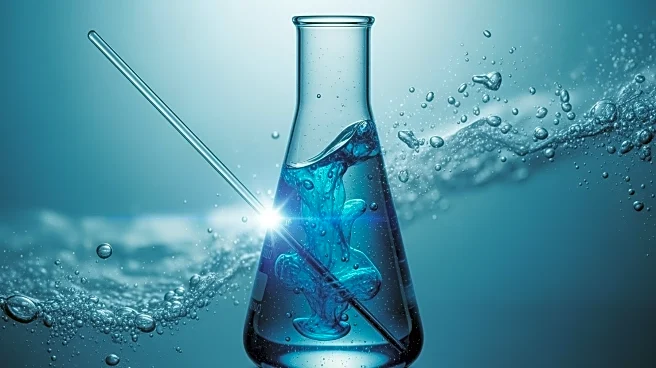What's Happening?
A team of chemists, microbiologists, and ecologists has created a molecular probe that glows when sugars are broken down, allowing scientists to observe the competition between algae and microbes in the ocean.
This innovation, detailed in the journal JACS, enables researchers to track the degradation of sugars, which are crucial in the marine carbon cycle. The probe uses fluorescent dyes that emit light when enzymes break down sugar molecules, providing insights into which microbes can digest specific sugars. This tool is expected to enhance understanding of carbon flux in ocean ecosystems.
Why It's Important?
The development of this molecular probe is significant as it provides a new method to study the marine carbon cycle, a critical component of global carbon management. By identifying which microbes can break down specific sugars, scientists can better understand how carbon is processed in ocean ecosystems. This knowledge is vital for predicting the ocean's role in carbon sequestration and its impact on climate change. The ability to track sugar degradation in real-time could lead to advancements in environmental science and contribute to more effective climate change mitigation strategies.








